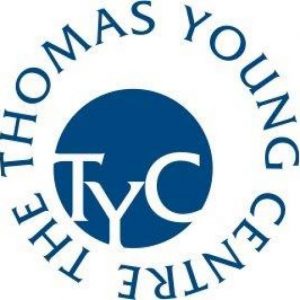
2nd TYC Early Career Award 2024
20 June 2024 @ 3:00 pm – 5:00 pm
Torrington Place (1-19), room G13
The TYC Early Career Prize, established in 2022 will be awarded to an early career researcher in recognition of their original published research in the theory and/or simulation of materials or (bio)molecules.
The awardee will be selected by a panel of academics in the broad field of theory and simulation of materials and molecules, and invited to UCL in London to give an presentation of their research work at a special in-person Symposium, to be held in London on 20 June 2024.
Shortlisted applicants are invited to give an oral presentation of their research work at this special in-person Symposium.
Attendance is free but we kindly ask you to register before 6th June
Schedule:
15:00-15:30 Federico Hernandez – QMUL/UCL
15:30-16:00 Emma Wolpert – Imperial College London
16:00-16:15 Coffee
16:15-16:45 Yasmine Al-Hamdani – University College London
16:45-17:15 Indrajit Maity – Imperial College London
17:15-18:00 Reception and Prize Giving
Boosting the H2 adsorption energy using insights from quantum Monte Carlo and density functional theory – Yasmine Al-Hamdani, University College London
Coarse-grained modelling for molecular materials design – Emma Wolpert, Imperial College London
Coarse-grained models are widely used to reduce the computational cost of simulating materials phase behaviour whilst retaining the main chemical and physical degrees of freedom. But beyond reducing computational cost, coarse-grained models can also be used to develop design rules by highlighting the degrees of freedom which are responsible for materials phase behaviour. Here we show how coarse-grained models can be used for molecular materials design, focusing on the assembly and supramolecular assembly of porous organic cages—molecules with permanent internal cavities. We first develop a coarse-grained model to investigate how geometric building block parameters influence the cage topologies formed.1 Subsequently, we predict the solid-state phase behaviour of the cages by relating their underlying geometry to a hard polyhedra with directional interactions between favoured packing motifs2. Our results show that by manipulating the parameters of our coarse-grained model, we can reproduce the phase space spanned by porous organic cages found within the literature. By mapping the coarse-grained phase space back onto calculated intermolecular interactions, we can directly relate each cage to its likely crystal packing structure, highlighting the potential for this model to predict the packing of new cages, inform design rules, and motivate targeted cage design. The principle used in this study is not unique to porous organic cages and we showcase examples of how coarse-grained modelling can be used for materials design in other molecular material such as organic semiconductors and covalent organic frameworks3.
[1] A Tarzia, EH Wolpert, KE Jelfs, GM Pavan, Chem. Sci. 14, 12506-12517 (2023).
[2] EH Wolpert and KE Jelfs, Chem. Sci. 13, 13588-13599 (2022).
[3] EH Wolpert, A Tarzia, and KE Jelfs, Chem. Commun. 59, 6909-6912 (2023).

